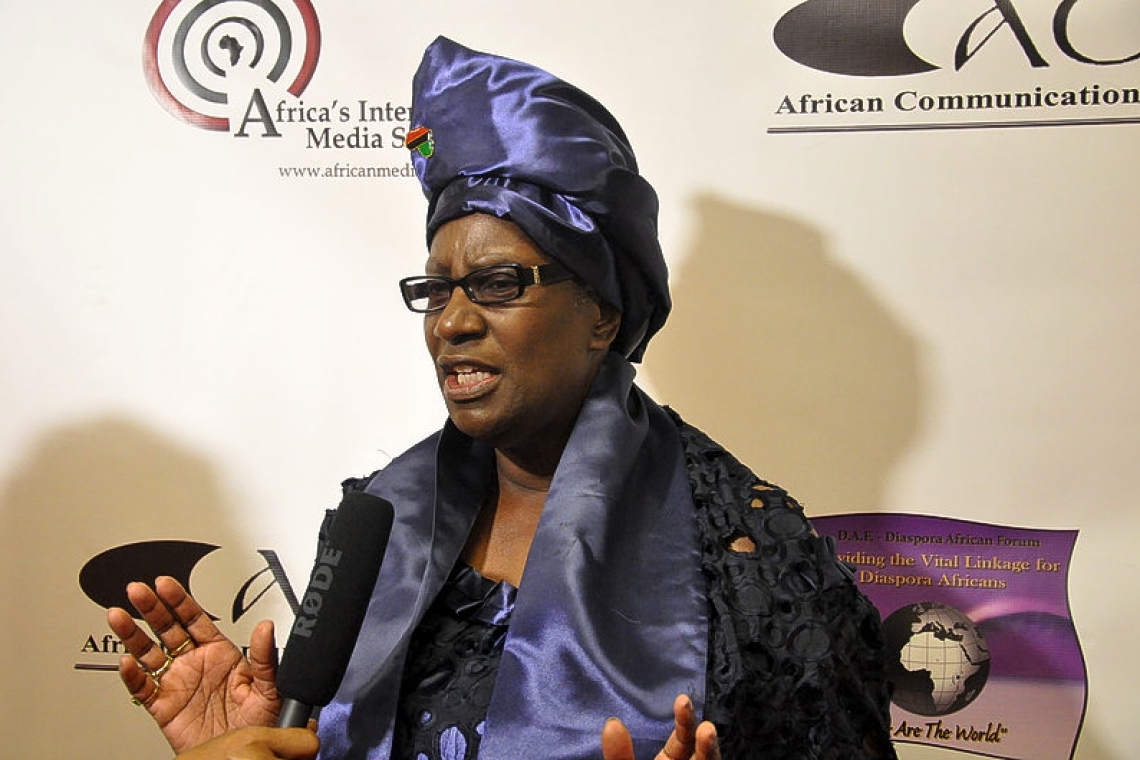LPS chairperson Barryl Biekman.
By Marvin Hokstam
AMSTERDAM--Being kept out of political and government decision-making processes could cause the black community of the Netherlands to be hit hard by COVID-19, the disease that is caused by the coronavirus. The media, the education system and the public health services will fall short, a report from the National Platform Slavery Heritage LPS has stated. It calls for political will and recommends that government reinstate an institution that could provide them with advice from the black community.
The research on which the report was based was conducted at the behest of the Office of the High Commissioner for Human Rights (OHCHR). “The section PAD [People of African descent – Ed.] of OHCHR has been receiving complaints about human rights violations in measures that are being taken worldwide against the disease. The OHCHR started global exploratory research and we have been asked to conduct the research in the Netherlands,” the LPS stated. The report was handed in on Tuesday, April 14.
It started off hinting that where the COVID-19 is concerned, the saying, “You don’t see whom you don’t hear” would apply to the black community. It charged that the media never show people of African descent as professionals in expert panels.
“The good practice examples they show are only from a white perspective and they certainly never show anything from outside the Dutch culture or from countries that have a history of Dutch colonialism. We are left to believe that there is nothing worrisome happening outside the view of the cameras,” the report stated.
It expressed concern that health care providers may still use discriminatory criteria when diagnosing a black person.
“Someone with dark skin will not turn red or bright white when it concerns a certain illness. They might say that someone with dark skin is imagining things, whereas they might believe a white person whose skin colour turns pale or red with fever.”
The report also warned against the belief that a person of African descent may have a higher pain tolerance than a white person, which could make medical professionals believe that a black person needs less anaesthesia during a medical procedure, which could turn disastrous for that person. “This anecdote found its origin during the transatlantic slavery period; the Anti-Racism Bureau Mid Netherlands mentioned this in its annual report and made recommendations.”
LPS also questioned whether there is enough consideration for high blood pressure, diabetes and sickle cell anaemia, diseases that can be characterised as inheritances from the slavery past and that could be diagnosed at a young age.
The report furthermore made note of children from the black communities being left with the short end of the stick by government’s decision to cancel the central exams. The school exams will now be used to determine whether pupils pass or fail, but the LPS warned that school personnel have been proven to be biased against children of African descent. It was referring to reports of children being advised to go for lower levels than they actually should.
“This measure could have consequences for children from African, Surinamese, Dutch Caribbean and Muslim diaspora communities,” LPS wrote.
It went on by calling for attention for small businesspeople “who are now already feeling the pain. Whom should they turn to for funds for the income they will lose now?” It also mentioned undocumented people who “at the moment have no rights,” saying it fears that the ongoing quarantine may lead to these people being put away strategically.
LPS called for the reinstatement of an institution that could serve as a go-between for government. “How is the input from people of African descent being organised at this moment? Considering the past experiences with people of African descent being used to test vaccines, people are worried about the direction the Netherlands will take.”
The report pointed out that the biggest problem is that the Constitution of the Netherlands does not consider the grounds of ethnicity and nationality. “The Netherlands was advised by a UN committee 10 years ago to apply these grounds to the Constitution as well, but the Netherlands instead chose to add ‘sexual preference’. The Dutch Constitution does not provide for anti-racism policy that can fight Afrophobia because policy-makers and anti-racism provisions do not know what Afrophobia is.”
It concluded: “In the fight against the virus, political will is necessary. Like in the everyday decision-making and processes before the COVID-19 crisis, political will is needed to recognise, acknowledge and factor in matters that concern institutional discrimination and racism. The virus does not make a distinction based on race, religion, nationality, social class or status, sex, gender or age. And considering the global developments, it doesn’t consider geography either.”







